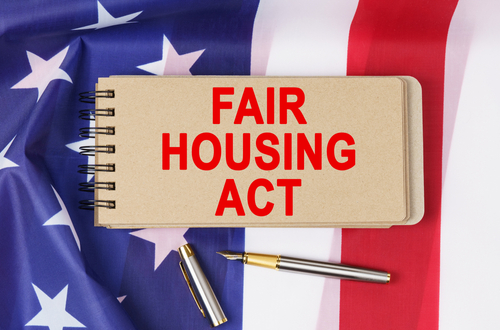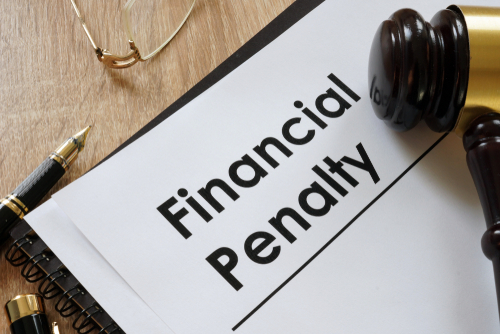
No family or individual should fall victim to housing discrimination, but unfortunately, it happens from time to time. That said, when you own a rental property, there are specific protocols that you must follow. For example, the 1968 Fair Housing Act prohibits discrimination against tenants. In addition, housing discrimination claims can have tremendous legal and financial consequences for a landlord. That said, let’s go over how you can survive a visit from a fair housing tester.
What is a Fair Housing Tester?
Before we go over how you can prepare for a hair housing test visit, let’s define what a fair housing tester is. In 1991, the Civil Rights Division created the Fair Housing Testing Progam within the Housing and Civil Enforcement Section.
According to the U.S. Department of Justice, “Testing refers to the use of individuals who – without any bona fide intent to rent or purchase housing, purchase a mortgage or vehicle loan, or patronize a place of public accommodation – pose as prospective renters, borrowers, or patrons for the purpose of gathering information.”

The information that testers gather is used to determine whether a provider complies with federal civil rights laws. In other words, testing is mainly used to identify housing discrimination based on race, national origin, disability, or familial status, violating the Fair House Act.
Now that we’ve defined what a fair housing tester does, let’s go over how a property owner can prepare for a compliance visit. Read on to determine when a tester will visit your property, what they are looking for, and the best ways to prepare for a tester to visit.
When Does a Tester Visit Your Property?
Since 1992, numerous individuals have been hired by the Fair Housing Program to accomplish compliance testing in local communities. The employees are hired on a volunteer basis and are trained to participate as local testers. With volunteer employees, the Fair Housing Testing Program conducts multiple investigations in local communities at any given time.
With that said, if a fair housing tester is coming to your rental property, it may be hard to determine when they are coming. The best way to stay prepared for a fair housing tester visit is to comply with all the laws associated with the Fair House Act.
Unfortunately, Fair Housing Act complaints are astonishingly common in the United States. While some of these complaints may be from unintentional landlord actions, it still occurs more than you think. So now, let’s define what a fair housing tester looks for while evaluating rental properties.
What is a Fair Housing Tester Looking For?
As stated above, the purpose of fair housing testing is a way to identify and investigate housing discrimination in the United States. That said, testers are looking for any signs of misrepresenting the availability of rental properties or offering unique sets of terms and conditions depending on race, national origin, familial status, and more.
When fair housing testers observe a rental home, they pose as prospective renters and go through the rental application process. Since you aren’t sure whether it’s an actual renter or a fair housing tester, landlords should always treat rental applicants with fairness and respect. Let’s go over some examples of housing discrimination that all landlords should avoid.

Who Is Protected Under the Fair Housing Act?
Under the Fair Housing Act, it is illegal for landlords to discriminate based on:
- Race
- Color
- National Origin
- Sex
- Religion
- Familial Status
- Disability
Examples of Housing Discrimination
Housing discrimination can come in many forms, so let’s look at a few. When selling or renting a home, it’s illegal to take any of the following actions because of a tenant’s race, national origin, sex, religion, familial status, and disability:
- Refuse to rent a unit or property
- Refuse to negotiate rental pricing
- Make housing unavailable
- Harassment in any form
- Different terms and conditions for certain tenants
- Evict a tenant or tenant’s guest
- Provide a person alternative housing services
- Limit privileges and facilities for certain tenants
- Falsely deny that housing is unavailable
- Implement different prices or rental charges
Unfortunately, there are many examples and instances of housing discrimination. Therefore, landlords should not lie about rental home availability, deny housing for any discriminatory reason, or set different terms and conditions for renting their property.
That said, the Fair Housing Act protects nearly all prospective tenants and current renters. It also covers most housing situations. However, there are some exemptions.
Fair Housing Act Exemptions
There are a few exemptions to the Fair Housing Act, like most laws. The following housing types do not apply to the Fair Housing Act.
- Some Single-Family Homes- Fair housing laws do not apply when the owner has less than three homes, and a unit is rented without a broker.
- Owner-Occupied Buildings- Fair housing laws typically do not apply in 2 to 4 unit buildings where the owner lives in one.
- Religious Organizations- Members of religious organizations can lease apartments on a property for non-commercial purposes and may legally give preference to people of the religion. That said, religious organizations may not discriminate against any race, color, or national origin.
- Senior Housing- Properties that qualify as senior housing are typically exempt. Eligible properties are those that participate in federal or state senior housing programs. Others may include restricted properties for people over 55 who fit the requirements.
- Private Clubs- Private clubs may lease buildings or part of buildings for non-commercial purposes only and limit occupancy or preference club members.
What’s the Best Way to Prepare for a Tester to Come?
To run a profitable and successful rental business, landlords must follow all housing laws and regulations. Although it goes without saying, violating any federal, state, or local housing laws is a property owner’s worst legal nightmare.
Since visits from fair housing testers are spontaneous, it’s hard for landlords to prepare truly. However, the best way to stay prepared for a compliance check is to follow all housing laws and regulations. After all, any person involved in the housing transaction is responsible for following all fair housing laws.
What Happens if Landlords Violate Housing Laws?

When landlords violate fair housing laws, legal and financial penalties may occur. For example, for complaints tried before a HUD Administrative Law Judge, penalties may be up to $16,000 for a first violation. For third violations, fines can increase up to $65,000.
Similarly, civil penalties for housing complaints brought up by the Department of Justice could be up to $150,000. In addition to civil penalties, courts may award victims costs to obtain new housing arrangements plus additional costs associated with that housing.
Finally, if landlords are penalized for fair housing violations, they will need to pay damages to victims. Injuries could range from humiliation, mental anguish, or other psychological trauma.
Victims of housing discrimination have one year from the incident to file a complaint with the U.S. Department of Housing and Urban Development. Additionally, residents of Pennsylvania can file with the Pennsylvania Human Relations Commission up to 180 days after the occurrence.
How to Minimize the Chances of a Fair Housing Complaint
Landlords know that protecting their rental business from financial and legal disputes is incredibly important to remain successful. Although rental owners are responsible for staying updated with housing laws and regulations, mistakes can happen.
Luckily, landlords can hire a full-service property management team to protect them from discrimination claims to save some stress. Bay Property Management Group’s experienced and trained property managers can ensure compliance throughout all business interactions.
Bay Property Management Group is a property management company in Philadelphia, Washington DC, Northern Virginia, Baltimore, and surrounding counties. We are committed to giving all tenants equal housing opportunities under federal law while protecting property owners with thorough tenant screening procedures. If you are interested in protecting your rental property business, give us a call today.
